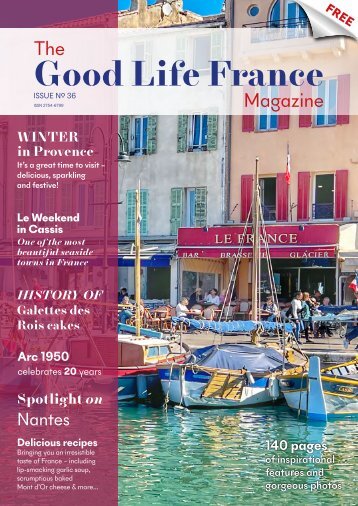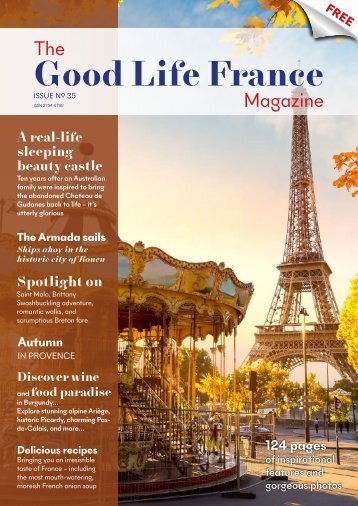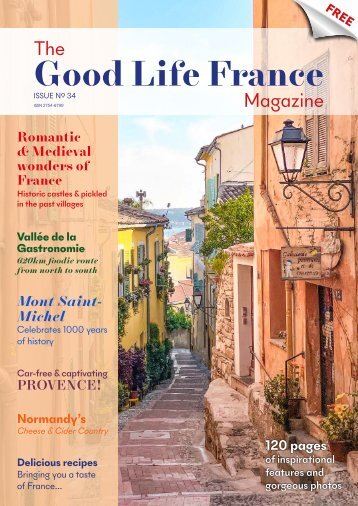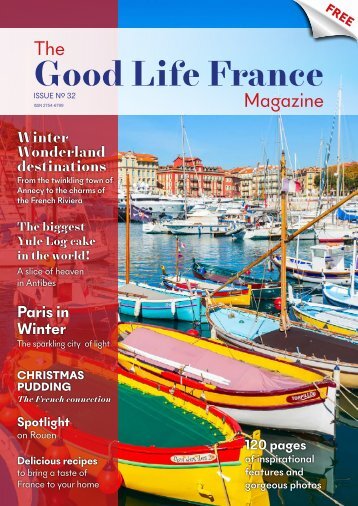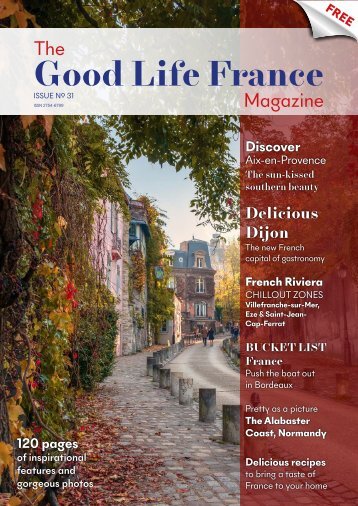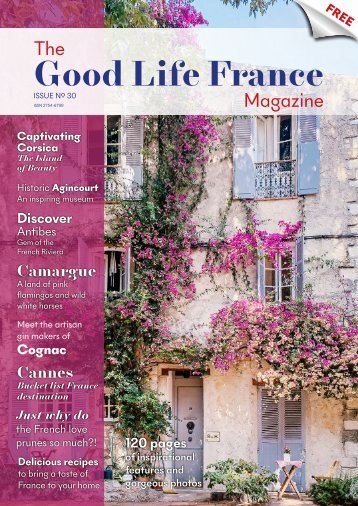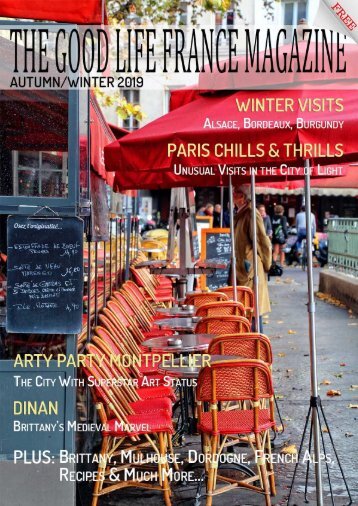
The Good Life France Magazine
The Good Life France Magazine brings you the best of France - inspirational and exclusive features, fabulous photos, mouth-watering recipes, tips, guides, ideas and much more...
Published by the award winning team at The Good Life France
Issue No. 24
Banking in France Why
Banking in France Why are cheques still so useful in France? Unlike the UK and many other European countries, cheques continue to be a favourite way to pay all kind of bills in France. Unlike the rest of Europe, the cheque book – le chéquier – is an important method of making payments in France. According to research, French people use cheques more than any other nation in Western Europe, whether to pay for groceries at the supermarket checkout or settle an invoice from an artisan. The history of cheques in France dates back almost 200 years when the Banque de France issued the country’s very first cheque, several decades after English bankers began using cheques as an alternative form of paper money. In 1865, a change in the law created the cheque that we know today. Legislation in the early part of the 20th century made it an offence to write a cheque without sufficient funds in your account to cover it and this is still the position today. Why then do, cheques continue to be a common method of paying bills in France in 2019? There are several reasons: they are a preferred form of payment for many artisans, and some doctors only accept cheques. If you are planning a renovation project, many businesses expect to receive a cheque payment. It’s simple, quicker and easier than carrying around an electronic bank card reader. The artisan will sign the invoice to confirm receipt of payment. Cheques are frequently used for larger purchases too and you do not need a bank card to guarantee a cheque, but you may need id. Writing cheques is a regular occurrence in France because they are a practical and guaranteed form of payment. Bouncing a cheque in France is a serious offence and it is illegal to write a French bank cheque for an amount which exceeds the balance of your bank account. Anyone who does, may lose the right to write cheques and will have limited access to banking services for up to five years – known as interdit bancaire. You should always check your bank statement before handing over a cheque to avoid potential bank fees or worse…. As you would do if you are using your card in a shop, online or at cash machine. Also avoid postdating cheques, because once they have been issued they could be presented immediately. One final precautionary note! Even after a payment made by cheque is credited to your account, banks can recover the money from your account if the cheque bounces for up to
- Page 3:
Editor's Letter Welcome to the Autu
- Page 6 and 7:
Features continued 48 Le Weekend: B
- Page 8 and 9:
Where to enjoy wine in winter in Fr
- Page 10 and 11:
ALSACE Alsace is the quintessential
- Page 12 and 13:
BORDEAUX Bordeaux makes for an idea
- Page 14:
BURGUNDY Burgundy’s wines are kno
- Page 18 and 19:
MOCO There are two exhibitions and
- Page 20:
Eat out Locals love: Café Joseph k
- Page 24 and 25:
The medieval town of Dinan in Cotes
- Page 26 and 27:
Head behind the Basilica of Saint-S
- Page 28:
Where to eat in Dinan Just wander t
- Page 32 and 33:
Catacombes de Paris Head 20 metres
- Page 34:
Janine marsh explores the Côtes d
- Page 37 and 38: Ploumanac’h - Perros-Guirec Perro
- Page 39 and 40: From Paimpol you can take a 10 minu
- Page 41: Where to stay: Hotel Edgar in Saint
- Page 44 and 45: Balades a Raquettes In my search fo
- Page 47: And relax at the Nama Springs Tucke
- Page 50 and 51: Historic centre Looking like someth
- Page 52 and 53: Chateau Museum The Chateau Comtal w
- Page 54 and 55: Eat out Enjoy the local favourite,
- Page 56: Strolling through the Dordogne Vall
- Page 59 and 60: The Dordogne flows 472km from Massi
- Page 62 and 63: Destination: Mulhouse
- Page 64 and 65: Mulhouse in Alsace in the northeast
- Page 66 and 67: Tour du Belvedere Not far from Mulh
- Page 68: Where to eat out in Mulhouse Café
- Page 71 and 72: In Le Havre, Perret delivered an id
- Page 73 and 74: uilt in 1859. Recently restored, it
- Page 75 and 76: New and fab: The Architect is run b
- Page 77: private provence tours Customized t
- Page 81 and 82: COLLIOURE Lonna Coleman captures th
- Page 83 and 84: Collioure is easily reachable by tr
- Page 85: july: Sunflowers in Gascony by Sue
- Page 90 and 91: TAKING YOUR FIRST STEPS IN FRANCE G
- Page 93: Should you choose state education,
- Page 97 and 98: Know what works best for you If you
- Page 99 and 100: DIRECTIONS: Soak the raisins overni
- Page 101 and 102: Method Melt the butter gently in a
Inappropriate
Loading...
Mail this publication
Loading...
Embed
Loading...



